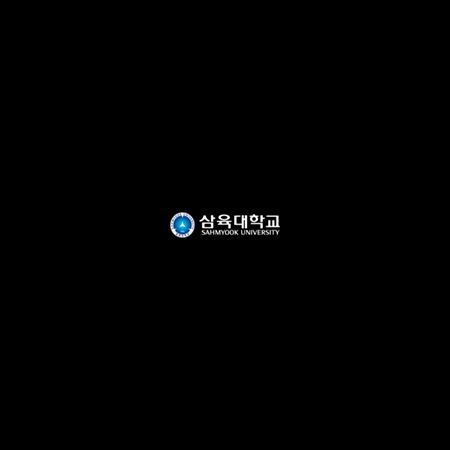Korean Studies – Korean Public Culture
| Instructor | Vladimir Tikhonov | Cedit | 2 |
| Session | 1 / 2 | ||
| vladimir.tikhonov@ikos.uio.no | |||
| Introduction | Professor of Korean and East Asian Studies, University of Oslo | ||
Course information
| COURSE DESCRIPTION & GOALS | South Korea has succeeded during the last decades in developing a formidable popular culture industry. In addition to saturating the domestic market, this industry has also grown into a prodigious exporter making its influence palpable worldwide but especially on the Asian cultural marketplaces. This course is aimed at understanding:
How South Korean state and capital has been nurturing country’s popular culture industry and promoting its exports? How South Korean popular culture attracts audiences, both domestically and globally? How South Korea popular culture (mis)represents the current conditions of South Korean society? |
| PREREQUISITE | Good command of academic English |
| COURSE REQUIREMENTS | Attendance (at least 80%) |
| GRADING POLICY | A to F, where A is the best grade. |
| TEXTS & REFERENCES | Dal Yong Jin. New Korean Wave: Transnational Cultural Power in the Age of Social Media. University of Illinois Press, 2016.
Kyung Hyun Kim, ed. The Korean Popular Culture Reader. Duke University Press, 2014. and additional academic chapters or articles |
| INSTRUCTOR’S PROFILE | Vladimir Tikhonov graduated from Leningrad State University and took his PhD in ancient Korean history from Moscow State University. He has taught at Kyunghee University (Seoul, 1997-2000) and State University for Humanities (Moscow, 1996). His research focuses on the history of modern ideas in Korea. Recent publications include: Social Darwinism and Nationalism in Korea: The Beginnings (Brill, 2010), Modern Korea and its Others: Perceptions of the Neighbouring Countries and Korean Modernity (Routledge, 2015); co-edited Buddhist Modernities – Re-inventing Tradition in the Globalizing Modern World (Routledge, 2017) and Military Chaplaincy in an Era of Religious Pluralism (Oxford University Press, 2017). He took South Korean nationality in 2001 and uses Pak Noja as his penname. |
Weekly schedule
| WEEK (Period) | WEEKLY TOPIC & CONTENTS | COURSE MATERIAL & ASSIGMENT | NOTES |
| 1 | “Understanding Popular Culture” | John Fiske, Understanding Popular Culture, pp. 1-21 | |
| 2 | “South Korean Popular Culture Before the 1990s: Romance, Sports, Songs “ | Kyung Hyun Kim, ed. The Korean Popular Culture Reader, pp. 20-33, 199-227 | |
| 3 | “Korean Film History before the late 1990s.” | Kyung Hyun Kim, ed. The Korean Popular Culture Reader, pp. 103-144 | |
| 4 | “The Political Economy of the “Korean Wave”: from the late 1990s onward” | Dal Yong Jin. New Korean Wave: Transnational Cultural Power in the Age of Social Media, pp. 20-39 | |
| 5 | ” K-pop – Hybridity, Globality, and the Logic of Commercialized Cultural Production” | Dal Yong Jin. New Korean Wave: Transnational Cultural Power in the Age of Social Media, pp. 111-130 | |
| 6 | “South Korean Cinema in the “Korean Wave” Age” | Dal Yong Jin. New Korean Wave: Transnational Cultural Power in the Age of Social Media, pp. 68-90 | |
| 7 | “South Korean Dramas and the “Korean Wave”” | Dal Yong Jin. New Korean Wave: Transnational Cultural Power in the Age of Social Media, pp. 43-67 | |
| 8 | “South Korean Animation: “Deodorization” and Global Appeal” | Dal Yong Jin. New Korean Wave: Transnational Cultural Power in the Age of Social Media, pp. 91-110 | |
| 9 | “South Korean Advertisement as a Form of Popular Culture” | Kyung Hyun Kim, ed. The Korean Popular Culture Reader, pp. 341-362; Kyoungtae Nam & Guiohk Lee & Jang-Sun Hwang, “Gender Stereotypes Depicted by Western and Korean Advertising Models in Korean Adolescent Girls’ Magazines” Sex Roles (2011) 64:223–237 | |
| 10 | “Korean Food and the Global Ambitions of the Gastronomic Nationalism” | Kyung Hyun Kim, ed. The Korean Popular Culture Reader, pp. 363-384; Priscilla Parkhurst Ferguson, “Culinary Nationalism” Gastronomica (2010) 10/1: 102-109 |
Curriculum is empty


